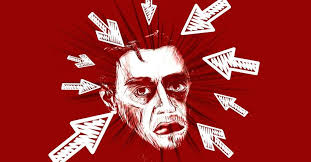Not all migraines exhibit the same symptoms and even those symptoms differ in intensity. What makes migraine so complex, however, is that there is no clear explanation of its causes and even its triggers. Trigger factors, or precipitating factors, are the objects and activities that can cause a migraine attack, but they are not necessarily the cause of the illness itself.
Migraineurs have different triggers, and unfortunately, the only way to determine which factors can trigger an attack is by experiencing it. That is why it’s important to keep track of everything you eat and drink and the activities you perform everyday through a diary.

Common Migraine Triggers
Some of the most common migraine triggers that you should look out for are the following:
1. Stress, anxiety, tension, and shock
2. Caffeine (found in coffee, tea, chocolate, and cola)
3. Exercise (either the lack of exercise or too much exercise)
4. Muscle tension and head injury
5. Dehydration (do not substitute for water sugary drinks or beverages with aspartame)
6. Sleep (either lack of sleep or too much sleep)
7. Changes in routine, environment, weather, and sleeping patterns
8. Hormonal changes in women (some women experience migraine during their monthly period)
9. Exposure to high humidity, flickering lights, glare from lights, loud noises, and high altitude

10. Prolonged exposure to the glare of computer screens
11. Skipping or missing meals
12. Eating too much sugary food
13. Consumption of additives in food such as MSG, aspartame, and nitrates
14. Alcoholic beverages (including wine, which has tannins)
15. Cheese (contains tyramine)
16. Use of oral contraceptives (these induce hormonal changes)
17. Grinding of the teeth (this happens during sleep)
18. Perfume and other strong scents
19. Sexual encounters
20. Food triggers
The most common food triggers among migraineurs, besides cheese and alcoholic beverages, are beans (all kinds of beans), chili peppers, pickles, dried fruits, olives, red plums, avocado, citrus fruits, banana, pizza, yeast breads, processed meats, bacon, sausage, hotdog, whole milk, sour cream, chocolate, and vinegar. Migraineurs are often advised not to consume anything with alcohol, caffeine, preservatives, additives, artificial sweeteners, and yeast.

Managing Migraine Triggers
The list provided above should serve only as a guide and is not set in stone, so you might still be able to enjoy some of the food and activities listed above. Remember as well, that some migraine triggers might not cause attacks years later, while new triggers can also appear. Just keep in mind that you have to pay close attention to everything, especially the food that you eat.
Changing your diet and exercise can help, but don’t forget that drastic changes can also trigger attacks. Talk to your doctor about these triggers and take your migraine diary with you next time you book an appointment, so that he/she can recommend a treatment for each stage of a migraine attack.




Leave a Reply